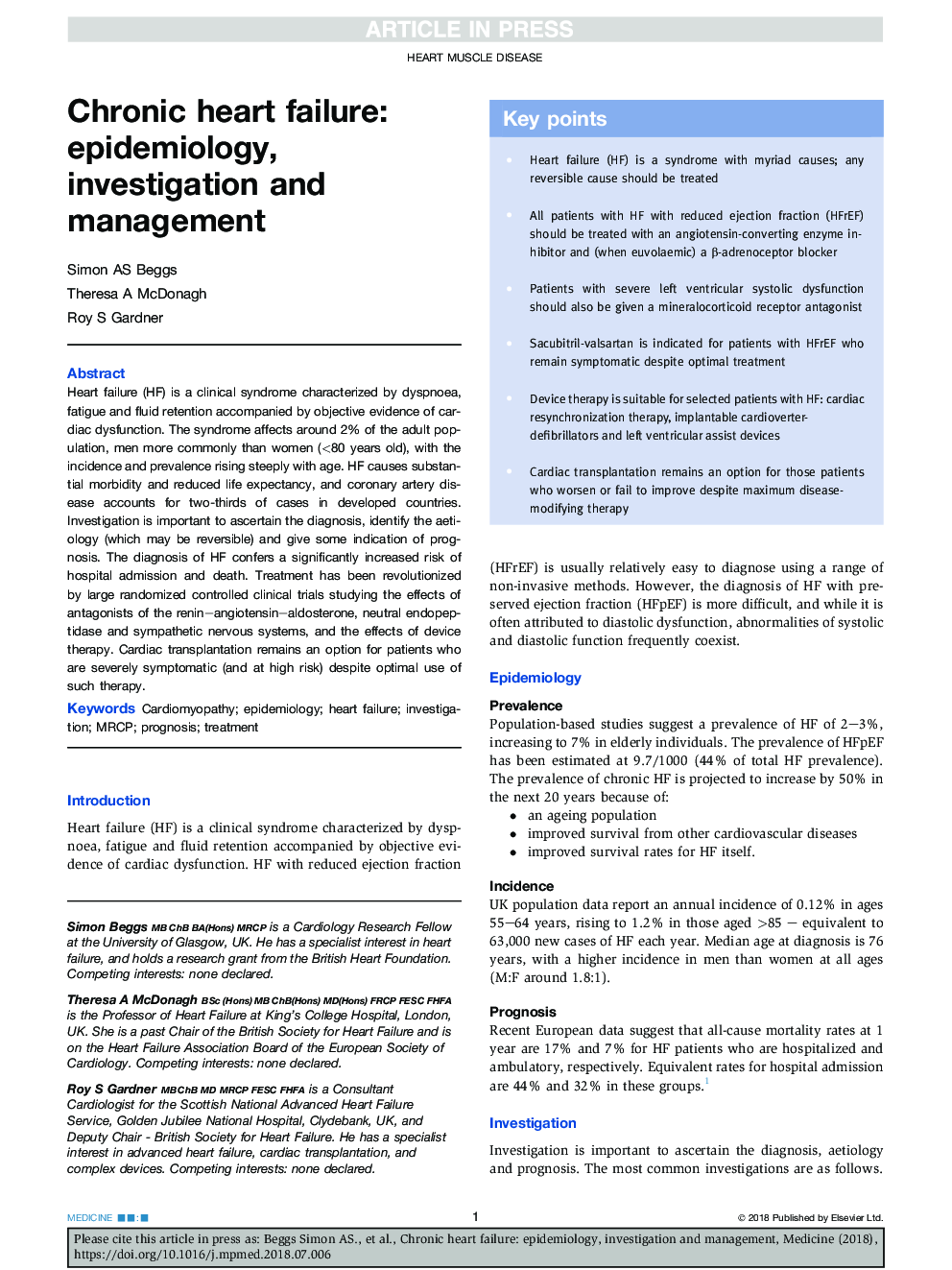| Article ID | Journal | Published Year | Pages | File Type |
|---|---|---|---|---|
| 11018235 | Medicine | 2018 | 7 Pages |
Abstract
Heart failure (HF) is a clinical syndrome characterized by dyspnoea, fatigue and fluid retention accompanied by objective evidence of cardiac dysfunction. The syndrome affects around 2% of the adult population, men more commonly than women (<80 years old), with the incidence and prevalence rising steeply with age. HF causes substantial morbidity and reduced life expectancy, and coronary artery disease accounts for two-thirds of cases in developed countries. Investigation is important to ascertain the diagnosis, identify the aetiology (which may be reversible) and give some indication of prognosis. The diagnosis of HF confers a significantly increased risk of hospital admission and death. Treatment has been revolutionized by large randomized controlled clinical trials studying the effects of antagonists of the renin-angiotensin-aldosterone, neutral endopeptidase and sympathetic nervous systems, and the effects of device therapy. Cardiac transplantation remains an option for patients who are severely symptomatic (and at high risk) despite optimal use of such therapy.
Related Topics
Health Sciences
Medicine and Dentistry
Medicine and Dentistry (General)
Authors
Simon AS. Beggs, Theresa A. McDonagh, Roy S. Gardner,
